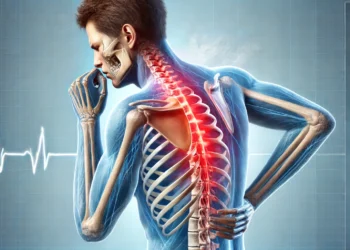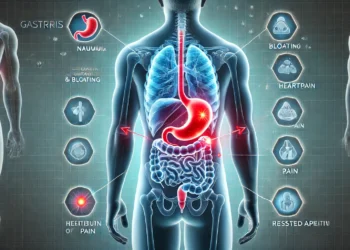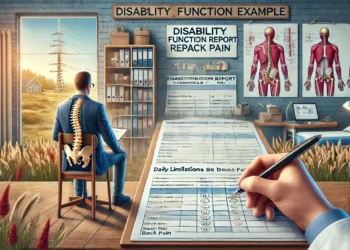Sneezing might seem like a harmless action, but for many people, it can trigger sudden and sharp back pain. Whether it’s a result of a jolt to your spine, muscle strain, or an underlying condition, back pain after sneezing is a common complaint. In this article, we will explore why sneezing can cause back pain and how to effectively treat and prevent it.
Why Does Sneezing Cause Back Pain?
A sneeze is a sudden and forceful expulsion of air from the lungs, which involves rapid contraction of the muscles in the chest, abdomen, and back. The forceful nature of a sneeze can place strain on the muscles and ligaments in your lower back, leading to discomfort or sharp pain. Here are some common reasons why sneezing can cause back pain:
Muscle Strain
The force of a sneeze can overstretch or strain the muscles in your back. If your muscles are already tight or weak, a sneeze can easily cause them to become overextended, resulting in pain.
Spinal Misalignment
The sudden jolt of a sneeze can lead to misalignment of the spine, especially if you have a pre-existing condition such as scoliosis or a herniated disc. This misalignment can irritate nerves in your back, causing pain or discomfort.
Herniated or Bulging Discs
If you have a herniated disc, sneezing can exacerbate the pain by increasing pressure on the affected disc. This can irritate nearby nerves and lead to pain, particularly in the lower back.
Poor Posture
If you have poor posture or are slouched when you sneeze, the force of the sneeze can worsen the misalignment in your spine and lead to back pain. Poor posture puts added strain on your back, making it more vulnerable to injury during sudden movements like sneezing.
Read Also: How Can Tight Muscles Result In Back Pain – How Tight Muscles Can Lead to Back Pain!
How to Treat Back Pain After Sneezing
If you experience back pain after sneezing, there are several effective treatments you can try to alleviate discomfort and promote healing. Here are some ways to treat the pain:
1. Rest and Gentle Movement
After experiencing back pain from sneezing, it’s important to give your body a chance to recover. While you should avoid any strenuous activities, light movement can help keep your muscles from stiffening up. Take short walks or gently stretch your back to help relieve tension.
2. Apply Heat or Ice
Using heat or ice can provide fast relief for back pain after sneezing. If your muscles are sore or inflamed, apply a cold compress or ice pack to the affected area for 15–20 minutes. For muscle stiffness, heat can be more effective, so try a warm compress or heating pad to relax the muscles and reduce pain.
3. Gentle Stretches
If the pain isn’t too severe, gentle stretching can help loosen tight muscles in your back. Focus on stretches that target the lower back, such as:
- Child’s pose: Sit on your knees and slowly reach your arms forward, stretching your back and hips.
- Knee-to-chest stretch: Lie on your back and bring one knee toward your chest, holding it with both hands.
- Cat-cow stretch: On your hands and knees, alternate arching and rounding your back to improve flexibility.
4. Over-the-Counter Pain Relief
If the pain is more persistent or moderate, you can take over-the-counter pain relief medications like ibuprofen or acetaminophen to reduce inflammation and relieve discomfort. Be sure to follow the recommended dosage and consult your doctor if the pain persists.
5. Maintain Proper Posture
Improving your posture throughout the day can help prevent back pain caused by sneezing in the future. When sitting, stand, or walking, try to keep your spine in a neutral position. Avoid slouching and make sure your head is aligned with your spine to reduce unnecessary pressure on your back.
6. Strengthen Core Muscles
A strong core provides better support for your spine and helps prevent back pain. Incorporate core-strengthening exercises like planks, bridges, and abdominal crunches into your routine to support your back and improve its resilience during everyday movements, including sneezing.
7. See a Doctor if Pain Persists
If your back pain persists after sneezing or becomes increasingly severe, it may be a sign of a more serious underlying condition, such as a herniated disc or spinal misalignment. Consult a healthcare provider for a thorough evaluation. They may recommend physical therapy or other treatments to address the root cause of the pain.
Prevention Tips to Avoid Back Pain from Sneezing

While back pain after sneezing can sometimes be unavoidable, there are several steps you can take to reduce the risk of injury:
1. Practice Good Posture
Maintaining proper posture can reduce the likelihood of back pain when sneezing. Stand and sit with your shoulders back, your spine aligned, and your head level with your body to ensure that your back is not under unnecessary strain.
2. Strengthen Your Back and Core
Strengthening the muscles in your back and core can help improve stability and reduce the risk of strain. Incorporate regular strength training exercises to keep your back muscles strong and resilient.
3. Use Proper Lifting Techniques
If you’re lifting objects, always bend at the knees instead of the waist. This helps protect your lower back from injury. This technique can also help prevent pain during other sudden movements like sneezing.
4. Stay Active
Staying physically active helps maintain muscle strength and flexibility, both of which are essential for supporting your spine. Regular physical activity can improve your body’s ability to withstand the stress caused by sudden movements like sneezing.
FAQs
1 Why does my back hurt after sneezing?
Sneezing can cause sudden strain on your muscles, ligaments, or spine, leading to back pain. It can also worsen existing conditions like herniated discs or muscle weakness.
2 How can I relieve back pain after sneezing?
Rest, ice or heat application, gentle stretches, and over-the-counter pain medications can help relieve back pain after sneezing.
3 Can poor posture cause back pain after sneezing?
Yes, poor posture can put extra strain on your spine, increasing the likelihood of back pain when sneezing.
4 How long does back pain after sneezing last?
Back pain from sneezing usually resolves within a few days. If it persists or becomes severe, it’s important to consult a healthcare provider.
5 When should I see a doctor for back pain after sneezing?
If your pain doesn’t improve with home treatments, if you experience severe pain, or if the pain is accompanied by numbness or tingling, consult a healthcare provider.
Conclusion:
Back pain after sneezing is an all-too-common issue, but with the right treatments and prevention strategies, you can reduce discomfort and prevent future episodes. Rest, proper posture, stretching, and strengthening exercises are all essential for promoting healing and minimizing back pain caused by sneezing. If the pain persists or worsens, consult a healthcare professional to determine if there is an underlying issue requiring further treatment.











